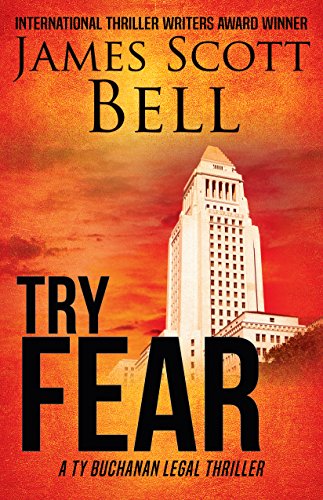
“I had to give up hope ten years ago. The hope was killing me.”
Dylan and Erin Reeve, the principal characters in James Scott Bell’s Your Son Is Alive, had a storybook life until one day 16 years ago, when their five-year-old son Kyle disappeared from a tee-ball game. No trace of him was ever found. The pain destroyed their marriage. But gradually they’ve learned to live with the sorrow. Dylan is even taking a chance on dating again.
Then, one night, he finds an envelope pushed through his mail slot. The message, written in crayon, says, “Your son is alive.” Erin gets mysterious phone calls. Is someone playing a game with them, or is this the beginning of a ransom demand, after all these years? Or both? There will be shocking surprises (some of them humdingers), and the implausible becomes very real as our heroes are thrown onto a roller coaster of re-opened emotional wounds and genuine physical danger.
I enjoyed reading Your Son Is Alive. It worked very well as a thriller, pushing all my empathy buttons. And the conclusion was satisfying.
The final revelation, though, struck me as pretty implausible. It was the sort of thing I expect more from Dean Koontz. Of course, I love it when Koontz does it. But one expects Koontz’s villains to come out of left field.
Recommended, with points deducted for believability. As usual with Bell, no obscenity.

This is how insanity starts. You get these thoughts and you let them play out and they cut a groove in your brain. If the groove gets big enough, you stay in it, like a diseased yak chained to a pole.
James Scott Bell writes pretty well in the shorter form as well as in novels. This is demonstrated in his collection, Watch Your Back, which contains a titular novella plus several short stories.
Watch Your Back is an interesting study in self-destruction, inspired by James M. Cain. Cameron Cates works for a large pension management company, doing computer security work. He makes a lot of money and is engaged to a lovely young woman. But he hates his job (though he’s good at it) and secretly chafes at the prospect of commitment in marriage.
Then a woman named Laine comes to work at his company. Laine is exotically beautiful and seductive, and Cam can’t stop thinking about her. When she shows an interest in him, he’s easy to seduce. And when she suggests a way they can become insanely rich, his resistance is as flimsy as his character. Trouble is, he doesn’t know some important things, and those things just might kill him.
Watch Your Back is a very neat Noir tale, nicely set up and paid off.
The other stories are good too. I especially enjoyed Heed the Wife, which played off an orthographic detail with which many of us who know old literature will be familiar.
Author Bell says that he published this book to explore a modern medium for re-creating the market for short stories, which died with the demise of pulp magazines. Sounds like a good idea to me. Mature themes, but no obscenity.







